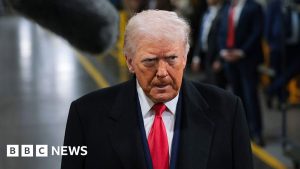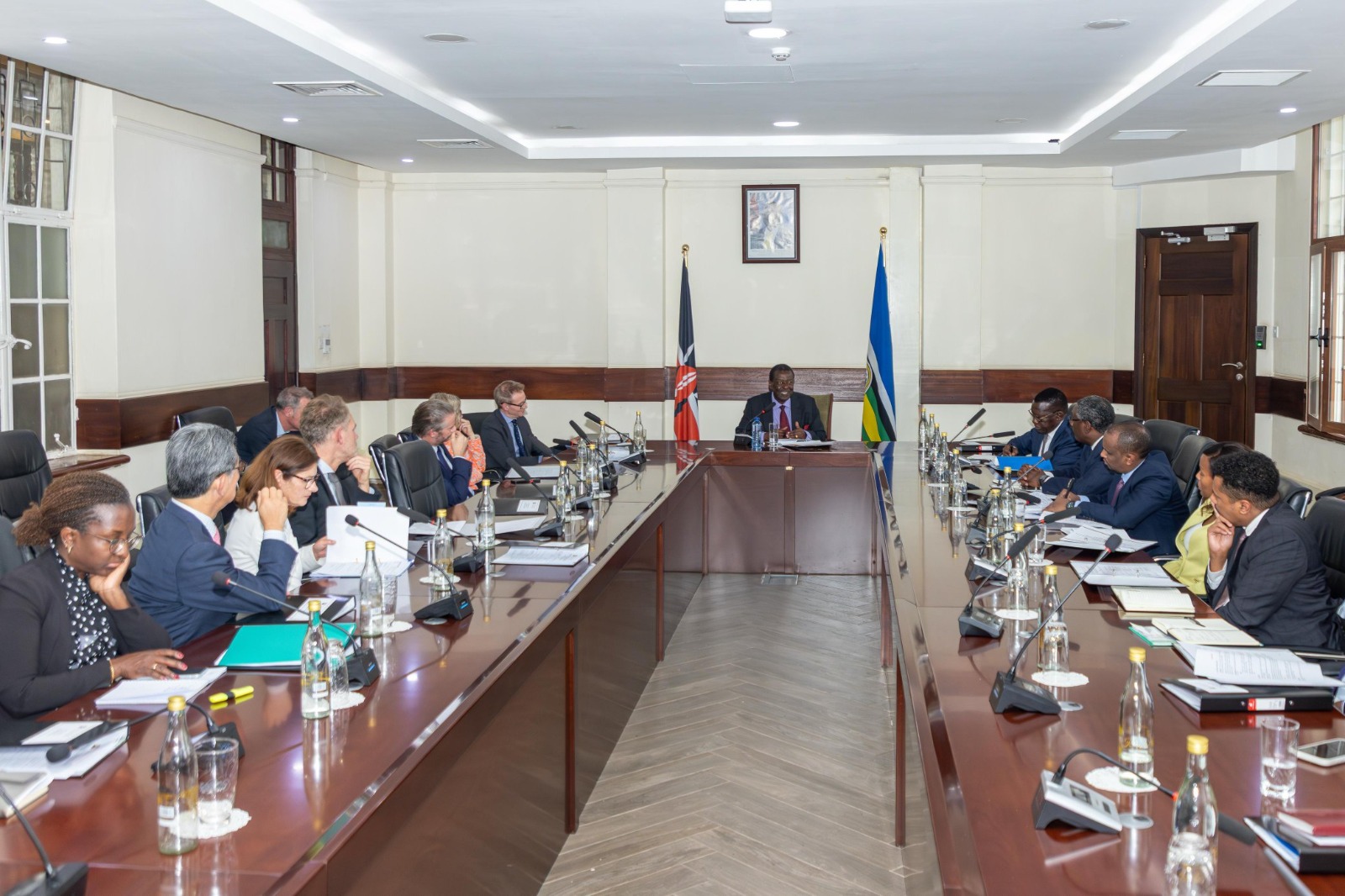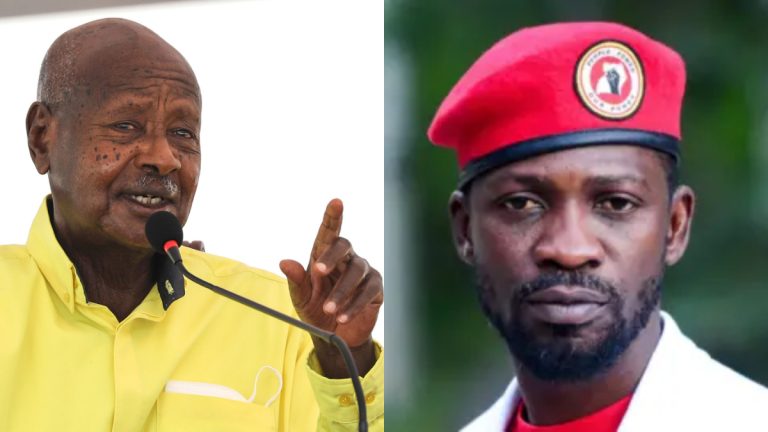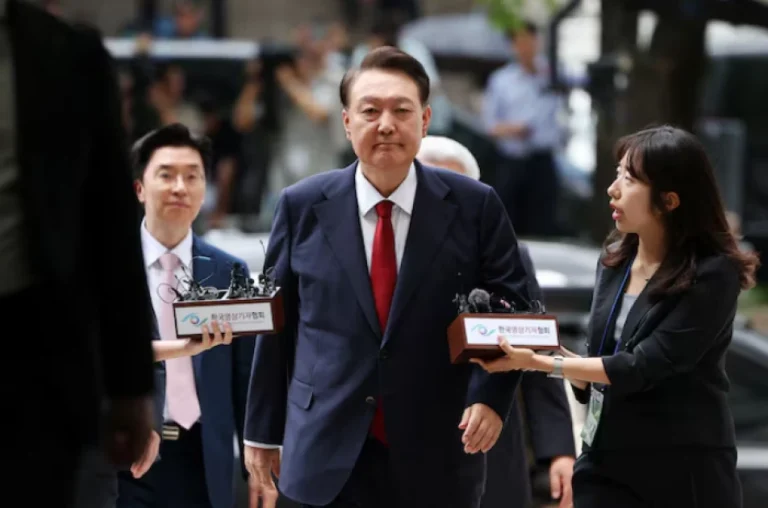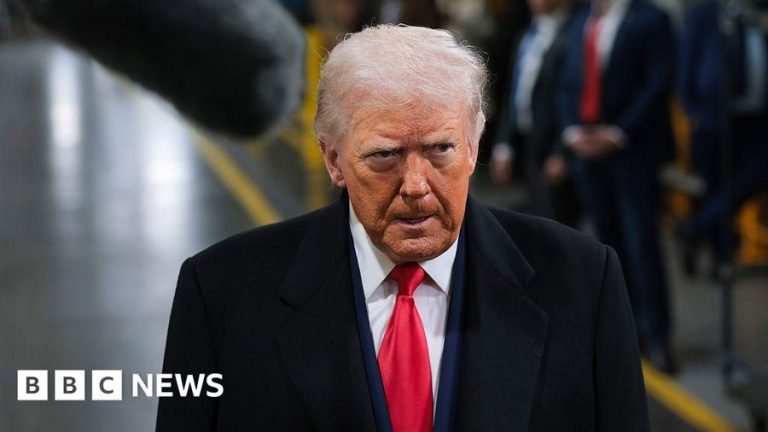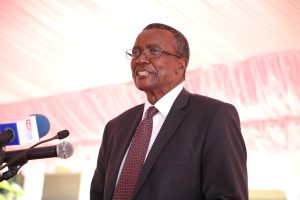The rivalry between G7 nations and China for infrastructure investment continues to intensify, as the Western and allied states move to execute Nairobi’s decongestion project.
Canada, France, Germany, Italy, Japan, the US and the UK have joined efforts to undertake flagship transport projects aimed at easing congestion across the metropolitan area through the Nairobi Railway Initiative.
Foreign Affairs CS Musalia Mudavadi on Monday met envoys of the G7 states and the EU to review the progress of flagship transport projects.
UK High Commissioner Neil Wigan reiterated his country’s strong backing for Kenya’s infrastructure agenda, especially the Railway City initiative.
“We are working closely with the government on the expression of interest and are now awaiting the Request for Proposals (RFP) for the Railways project,” Wigan said.
“This collaboration is a clear example of how international partnerships can deliver practical results.”
The pilot programmes under review are part of a broader government push to modernise public transport systems through innovation, public-private partnerships and green urban planning.
The initiatives are linked to the Nairobi Railway project, which is part of the G7’s ‘Partnership for global infrastructure and investment’.
The partnership was announced in June 2022, to provide an alternative to China’s Belt and Road project.
The G7 nations committed to mobilising $600 billion (Sh129.2 billion) in public and private funds over five years to finance infrastructure projects in developing countries – a bid seen to rival China’s Belt and Road Initiative.
Following the commitment, Kenya presented the Nairobi Metropolitan Area decongestion transport programme as a key initiative.
It aligns with the Nairobi Integrated Urban Master Plan (Niuplan), Nairobi Transport Master Plan, and Nairobi Commuter Rail Master Plan.
Each of the countries is handling different aspects of the projects, which include the railway, the commuter rail, the NRT and the non-motorised transport system.
Officials from the Foreign Affairs on Tuesday told the Star that while the UK will undertake the Railway City station project, Japan has expressed interest in the commuter rail, specifically Line 1 to Limuru and the World Bank is undertaking the feasibility study for the line to Thika.
France’s Agence Française de Développement has expressed interest in funding Line 5 to Embakasi.
In March last year, Kenya and France signed a Sh19.8 billion loan deal for the modernisation of the Nairobi Commuter Rail.
On the other hand, China has been instrumental in the Nairobi decongestion project, with the Nairobi Expressway being a key initiative to ensure easier and faster access to and from the JKIA.
It has in the process decongested Mombasa Road, Uhuru Highway, Waiyaki Way and Outering Road, among other key arteries.
Chinese firm Stecol Corporation, in a joint venture with Shanghai Municipal Engineering Design Institute (SMEDI), in June 2020 secured Sh5.6 billion to construct the Bus Rapid Transit system in Nairobi, particularly on Thika Superhighway.
The project, specifically for the Thika Highway, is part of a larger effort to improve public transportation and ease traffic congestion in the city.
At the Monday meeting, Mudavadi called on development partners to sustain their support and deepen collaboration as the government accelerates implementation of urban mobility reforms. “These projects go beyond easing traffic. They are about building a modern, inclusive, and liveable city that meets the needs of all Kenyans,” Mudavadi said.
To ensure standardisation, officials told the Star that the government has taken the lead to ensure coordination.
A feasibility study was done by the World Bank to provide a design for standardisation so that the three key projects – rail, commuter rail and NMT – are in tandem.
In November 2024, Mudavadi said the collaborative effort will stimulate business, strengthen local economies and elevate the quality of life for residents across Nairobi, Kiambu, Machakos, Kajiado and Murang’a counties.
by ELIUD KIBII


